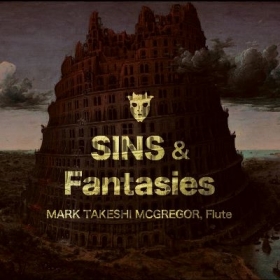We won’t go into the details—because, frankly, we don’t understand them—but in astronomy a redshift is a way to measure an object’s placement in space, and its movement vis-à-vis the earth.
“It’s like the Doppler effect, but for light,” Redshift Records mastermind Jordan Nobles tells me in a telephone interview from his North Vancouver home. “We can look at stars and galaxies in space and tell if they’re moving away or towards us much by how much their light spectrum is shifted into the red—or the blue, if it’s coming towards you. So the further away a galaxy is, the more shifted into the red its spectrum is.”
What we do understand is that Redshift is the perfect name for Nobles’ label, which is itself an outgrowth of his innovative Redshift Music Society. The parent organization began as a way for the post-minimalist composer and his peers to explore music in untraditional settings, like the Stygian underpinnings of North Van’s Capilano Dam, or through various forms of spatialization. Last year, for instance, Redshift presented 21st Century Guitars as part of the International Society for Contemporary Music’s World New Music Days; the event deployed eighteen electric guitarists over four floors of the Vancouver Public Library’s downtown atrium. And there’s the Redshift Array, a sixteen-channel, sixteen-speaker sound system that can provide spatial music, even without the input of live performers.
In contrast, a record label seems like a fairly pedestrian undertaking, but there’s every indication that Redshift Records is ready to move away from the norm—and its track record, so far, is decidedly impressive. With thirty-seven releases to its credit, the decade-old enterprise has one of the deepest catalogues in English-speaking Canada, with noteworthy albums including Negative Zed’s recording of Nobles’ own Immersion (TK441), which won a 2017 Juno Award for best classical composition. Other praiseworthy efforts include Liquid States (TK427) and New Wave (TK448) by Standing Wave, one of the West Coast’s most accomplished chamber ensembles; two extraordinary volumes of new music for erhu and piano by the Piano and Erhu Project’s Corey Hamm and Nicole Ge Li (TK437 and TK440); and Hamm’s own album-length recording of Fredrick Rzewski’s The People United Will Never Be Defeated (TK431), the label’s best-selling release.
These achievements are all the more remarkable given that Nobles instigated Redshift Records simply because he wanted to hear his own music in an unpressurized environment. “A lot of times after I do a concert, or even if it’s someone else’s concert that I had a piece in, I’m too nervous or too worked up during the concert to know if I wrote a good piece,” he explains. “And I only know later, when I go home and I put headphones on and I lie on the couch and I listen to whether or not it was a good piece or a good performance.
“It also felt like we were spending a lot of effort on putting these concerts together, and some of them were like, ‘Wow, that was an amazing concert! I can’t believe we pulled that off. Too bad no one else will hear it.’ So the label became an extension of the concerts.”
Pressed to say whether Redshift, the label, has any kind of in-house style, Nobles initially says no. “The reason being that it’s an outlet for a lot of different people that I admire and respect, and for their music. It’s about presenting performers I admire or composers I admire who work in Canada; if they think that their CD is awesome, then I want people to hear it. Right from the beginning, I didn’t want to put my artistic stamp on it.”
That said, it’s possible that there is one characteristic that links most of Redshift’s releases: every album—whether Allison Cameron and Contact’s dreamy A Gossamer Bit (TK445) or flute virtuoso Mark Takeshi McGregor’s theatrical and challenging Sins & Fantasies (TK430)—contains some music that simply stops time.
“That’s what I like the most: things that are slowed down; things that are like a frozen moment in time; or just things that muck with time, whether quick or slow,” Nobles allows. “But mostly slow.”
And “mucking with time,” he adds, is exactly what he has in mind for Redshift Records’ future. Faced with an irreversible decline in CD sales—“the CD is already gone, and no one knows”—Nobles is on the hunt to do new and creative things with streaming. Like, for instance, his as-yet-untitled piece that involves ninety brief sonic modules, made to be listened to in shuffle mode, for as long as the listener cares to engage.
Sales may be down, profits might shrink, but for Redshift Records the universe continues to expand.






